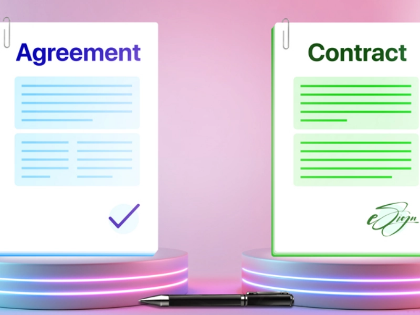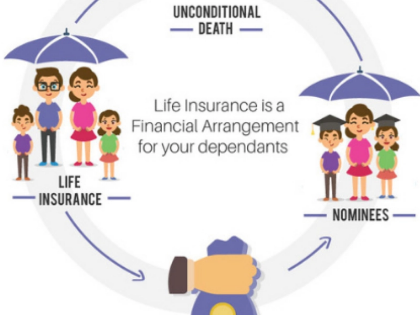The Impact of Refinancing on Your Credit Score
Your goals, such as debt repayment, home improvements, or a cheaper interest rate or monthly payment, can all be accomplished with refinancing. If you carefully review the terms of each loan and make timely payments on your new debt accounts, it might also help you raise your credit score. Usually, refinancing necessitates a rigorous investigation, which may momentarily lower your credit scores. But if you take the appropriate actions, the effects ought to subside.
Your credit rating
 Your credit score will usually decrease after refinancing, but this is a good thing. Lenders pull credit when you examine rates, which results in a hard inquiry on your record and may cause a small dip in your three-digit score. Additionally, since your old mortgage will be replaced by the new one, you forfeit the advantage of having an older loan account, which could decrease your credit history overall and lower your score.
The good news is that most scoring models treat numerous lender queries as a single inquiry, so refinancing shouldn't have as much of an influence on your credit score as you might have imagined. In the same way, once the credit card is cleared, paying your bills on time ought to assist in raising your score.
Remember that your credit score may still suffer a great deal if you fail to make your original loan payment throughout the refinancing process and the credit bureaus are notified. Thus, during the time that your mortgage is being processed, make sure you keep up with your regular loan payments and refrain from opening any new ones.
Your credit score will usually decrease after refinancing, but this is a good thing. Lenders pull credit when you examine rates, which results in a hard inquiry on your record and may cause a small dip in your three-digit score. Additionally, since your old mortgage will be replaced by the new one, you forfeit the advantage of having an older loan account, which could decrease your credit history overall and lower your score.
The good news is that most scoring models treat numerous lender queries as a single inquiry, so refinancing shouldn't have as much of an influence on your credit score as you might have imagined. In the same way, once the credit card is cleared, paying your bills on time ought to assist in raising your score.
Remember that your credit score may still suffer a great deal if you fail to make your original loan payment throughout the refinancing process and the credit bureaus are notified. Thus, during the time that your mortgage is being processed, make sure you keep up with your regular loan payments and refrain from opening any new ones.
Rates of interest
 Lenders take into account both your credit score and your debt history when determining whether to approve a loan, even though credit ratings play a significant role in the process. This aids the lender in assessing your risk level and determining the appropriate interest rate to provide.
As a savvy consumer, you will undoubtedly compare refinance rates to obtain the best possible loan conditions. On the other hand, if you apply for several loans in a short amount of time, your credit score may be momentarily lowered as a result of each application triggering a hard inquiry. Therefore, to preserve your credit ratings, make sure to restrict your rate-shopping to a specific time frame.
Refinancing is sometimes used to reduce interest rates, make monthly payments, or earn money to settle other debts, all of which might eventually enhance your credit score. Your mortgage will be considered new debt if you refinance for cash, which could temporarily reduce your credit scores.
Lenders take into account both your credit score and your debt history when determining whether to approve a loan, even though credit ratings play a significant role in the process. This aids the lender in assessing your risk level and determining the appropriate interest rate to provide.
As a savvy consumer, you will undoubtedly compare refinance rates to obtain the best possible loan conditions. On the other hand, if you apply for several loans in a short amount of time, your credit score may be momentarily lowered as a result of each application triggering a hard inquiry. Therefore, to preserve your credit ratings, make sure to restrict your rate-shopping to a specific time frame.
Refinancing is sometimes used to reduce interest rates, make monthly payments, or earn money to settle other debts, all of which might eventually enhance your credit score. Your mortgage will be considered new debt if you refinance for cash, which could temporarily reduce your credit scores.
History of Payments
 Your credit score is largely influenced by your repayment history, so if you want to raise your score, it's critical that you make your payments on time. You can cut your monthly payments and lock in a better interest rate by refinancing your home or auto loan. Additionally, it can assist you in debt consolidation or in accessing your equity to finance other purchases or home upgrades.
The good news is that your credit score is usually only temporarily impacted by refinancing. This is so that the lender can decide whether or not to grant the loan based on your recent credit history. On the other hand, applying to several lenders while comparing rates may result in several hard inquiries being made about your credit history.
The number of lenders you apply to and the length of time it takes to secure a loan might have a greater impact on your credit score than a single application. You can lessen the negative consequences of refinancing by avoiding pointless hard inquiries, concentrating on debt repayment, and maintaining a low credit use rate.
Your credit score is largely influenced by your repayment history, so if you want to raise your score, it's critical that you make your payments on time. You can cut your monthly payments and lock in a better interest rate by refinancing your home or auto loan. Additionally, it can assist you in debt consolidation or in accessing your equity to finance other purchases or home upgrades.
The good news is that your credit score is usually only temporarily impacted by refinancing. This is so that the lender can decide whether or not to grant the loan based on your recent credit history. On the other hand, applying to several lenders while comparing rates may result in several hard inquiries being made about your credit history.
The number of lenders you apply to and the length of time it takes to secure a loan might have a greater impact on your credit score than a single application. You can lessen the negative consequences of refinancing by avoiding pointless hard inquiries, concentrating on debt repayment, and maintaining a low credit use rate.
Fresh Credit
 Your score can decrease if a lender requests a credit check in order to authorize a refinance. However, compared to soft inquiries used for rate shopping and other purposes, hard inquiries connected to loan applications typically result in a lower score decline.
If you've had better credit or lower market rates since taking out your first loan, refinancing may be able to get you better terms on a new one. Refinancing, for instance, can help you shorten the length of your loan, lower your monthly payments, and pay off the debt more quickly. By moving from a variable to a fixed interest rate, you can also benefit from cheaper rates.
In order to reduce interest costs, homeowners frequently refinance their mortgages. They might also try to cash out the equity in their house or combine many higher-rate debts to get a more tolerable monthly payment. To find out if you may refinance your mortgage, a lender will usually examine your income, assets, and debts.
Your score can decrease if a lender requests a credit check in order to authorize a refinance. However, compared to soft inquiries used for rate shopping and other purposes, hard inquiries connected to loan applications typically result in a lower score decline.
If you've had better credit or lower market rates since taking out your first loan, refinancing may be able to get you better terms on a new one. Refinancing, for instance, can help you shorten the length of your loan, lower your monthly payments, and pay off the debt more quickly. By moving from a variable to a fixed interest rate, you can also benefit from cheaper rates.
In order to reduce interest costs, homeowners frequently refinance their mortgages. They might also try to cash out the equity in their house or combine many higher-rate debts to get a more tolerable monthly payment. To find out if you may refinance your mortgage, a lender will usually examine your income, assets, and debts.











